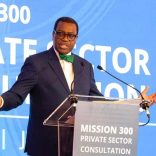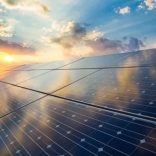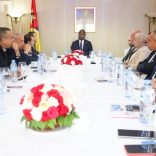Oil India sees restart of Mozambique LNG project by year's end
Diversification of the matrix: African experts convene in Mozambique to discuss energy, infrastructure

As the African continent continues to face the challenge of building necessary infrastructure and adequate to support the development and investment in the energy sector, whose realization can reduce losses in gross domestic product (GDP), forty experts are gathering in the Mozambican capital, Maputo to map a way forward, APA can report.
During the meeting opening the two-day Fourth Conference on Energy and Infrastructure in Southern Africa (SAEIS) which began on Friday, Mozambique’s Deputy National Director of energy, Marcelina Mataveia said energy is a pillar of economic and social development of any country, hence the need for infrastructure development, particularly in identifying viable solutions that can leverage the economic situation of countries.
Data presented at the meeting show that 13 percent of the world’s population lives without electricity, and of this number, 48 percent lives on the Mainland where are most worrisome levels of energy deficit.
The meeting is running under the theme “Accelerating the Pace of investment in Energy Strategy of southern Africa, energy and infrastructure in southern Africa, is of large importance for the African continent”.
Mataveia said Africa still faces the challenge of building energy infrastructure to ensure the supply of energy for domestic needs, as well as for export in the regional market adding that the development and utilization of energy resources require investments for the construction of physical infrastructure, with a particular highlight for the dams and their shipping lines to the flow of energy to the consumer centres.
“All this is a great challenge that requires resources on a scale that most African countries exceeds the ability of public funding, leading, this time, the project development options that allow the sharing of the risks,” said Mataveia.
For the official, this meeting therefore advocates the importance of ensuring a consultative approach to diversification on the basis of available resources. In the case of Mozambique, this means that in addition to the water resources are also addressed other existing resources like coal, natural gas as well as new and renewable energies.
According to Mataveia, the diversification of the energy matrix allows the balanced use of natural resources and greater security in energy supply, as well as greater control of environmental effects in some sources.
“This means that a more complete evaluation should not delete the other energy sources especially when there are significant levels”, said Mataveia, noting that the energy planning plays a critical role in diversification of the energy matrix that ensures both the balanced use of resources as well as its sustainability.
In the two-day meeting, where regional regulators also in attendance, participants must identify measures leading to the increase and diversification of energy.
The participants will focus on financing infrastructure projects and energy, the key role of gas in southern Africa, a project essential to Africa’s energy future.













Leave a Reply
Be the First to Comment!
You must be logged in to post a comment.
You must be logged in to post a comment.